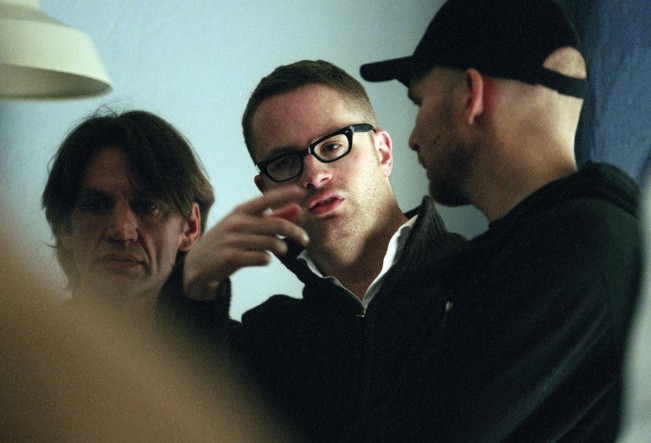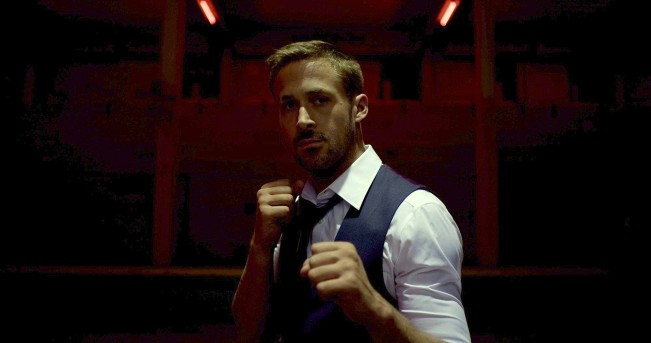By Jake Howell jake.howell@utoronto.ca
Countdown to Cannes: Nicolas Winding Refn
NICOLAS WINDING REFN
Background: Danish; born Copenhagen, Denmark, 1970.
Known for / styles: The Pusher trilogy (1996, 2004, 2005), Bronson (2008), Valhalla Rising (2009), Drive (2011); working with Mads Mikkelsen, stylized violence, shooting chronologically, heavily contrasted palettes (due to claimed color blindness).
 Notable accolades: When it comes to awards, Drive is Winding Refn’s most successful film, starting with the Best Director win at Cannes. The film also landed him a BAFTA nomination in the same category, and he continued to rack up directing prizes from critic circles and film festivals. In 2008, Bronson won Best Film at the Sydney Film Festival.
Notable accolades: When it comes to awards, Drive is Winding Refn’s most successful film, starting with the Best Director win at Cannes. The film also landed him a BAFTA nomination in the same category, and he continued to rack up directing prizes from critic circles and film festivals. In 2008, Bronson won Best Film at the Sydney Film Festival.
Previous Cannes appearances: Drive is Winding Refn’s only film to play the Festival. In terms of Festival prizes, the Dane is one for one. This leads us to his second Competition entry:
 Film he’s bringing to Cannes: Only God Forgives, a Thai-French-Danish co-production that follows a Muay Thai boxing-club manager, Julian (Ryan Gosling), who seeks vengeance for the recent death of his brother. Kristen Scott Thomas plays Jenna, Julian’s “Mafia godmother,” while Vithaya Pansringarm plays Chang, the “Angel of Vengeance.” Hyper-violence is to be expected.
Film he’s bringing to Cannes: Only God Forgives, a Thai-French-Danish co-production that follows a Muay Thai boxing-club manager, Julian (Ryan Gosling), who seeks vengeance for the recent death of his brother. Kristen Scott Thomas plays Jenna, Julian’s “Mafia godmother,” while Vithaya Pansringarm plays Chang, the “Angel of Vengeance.” Hyper-violence is to be expected.
Could it win the Palme? According to Ryan Gosling, Only God Forgives is “the strangest thing [he’s] ever read”—which actually spells good things for the film’s Palme pitch. While action movies don’t typically play well in Competition, Only God Forgives promises to be something especially artful: with the release of some red band trailers, we know that the film looks stylistically and aesthetically slick; almost like the spiritual sequel of Drive. When Drive premiered back in 2011 after a solid week of dramas, the sudden surge of energy enlivened the Croisette and left an unforgettable impression on audiences. It rode a wave. If Only God Forgives’ Muay Thai gong-show is similarly great (and the timing is just right), an award-winning ass-kicking could prevail in the very near future.
Why you should care: As if to taunt the rest of the Competition, Winding Refn’s trailer ends with Julian muttering: “Wanna fight?” Regardless of who wins the Palme d’Or, though, the stage is set for Only God Forgives to be an excellent showdown of arthouse action. Oh, and Drive’s head-bobbing soundtrack? Composer Cliff Martinez is back for another mix, so the needle-drops and bass lines should be on point. It’s time to get pumped… again.















